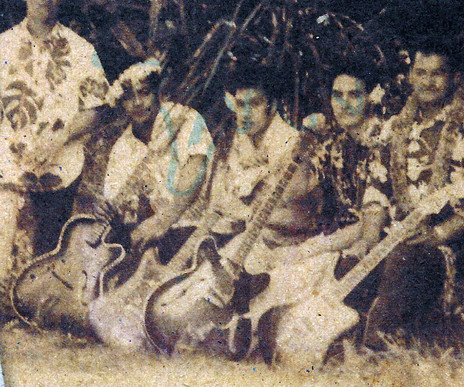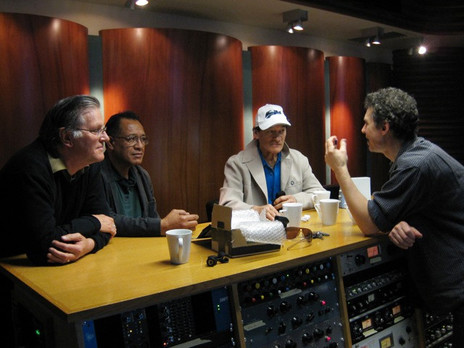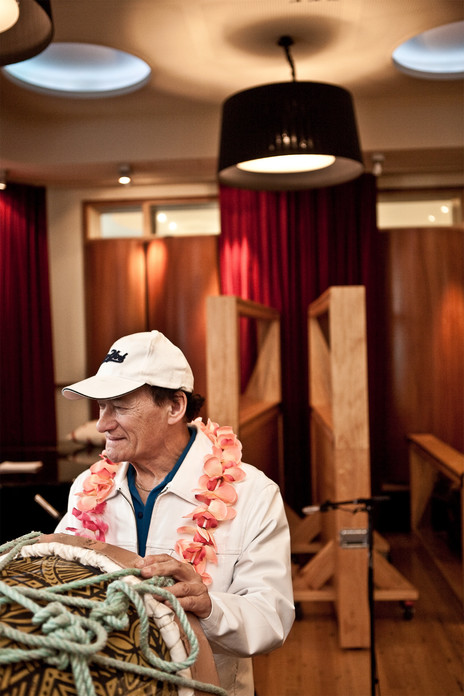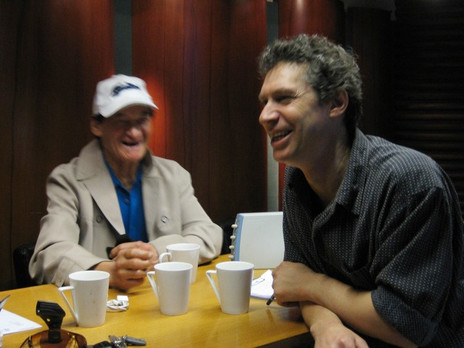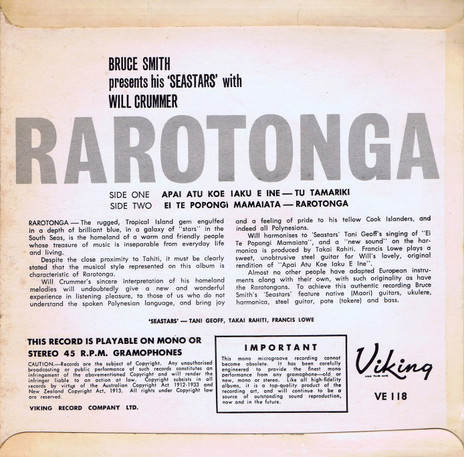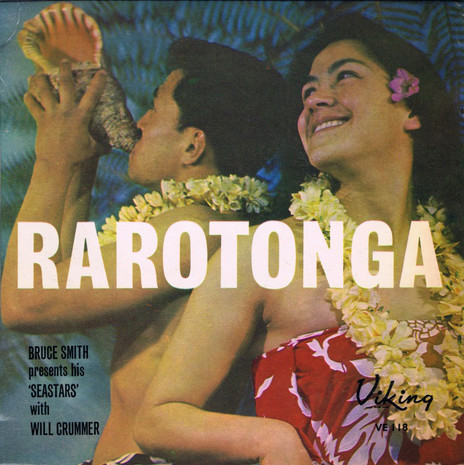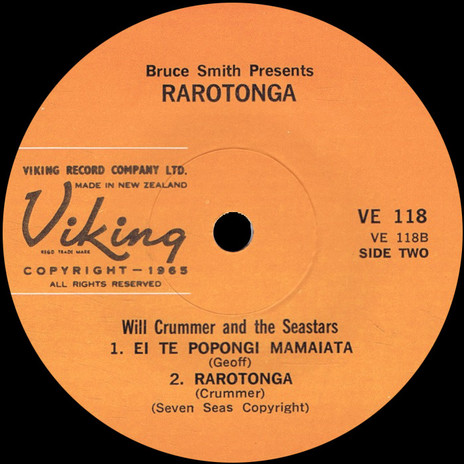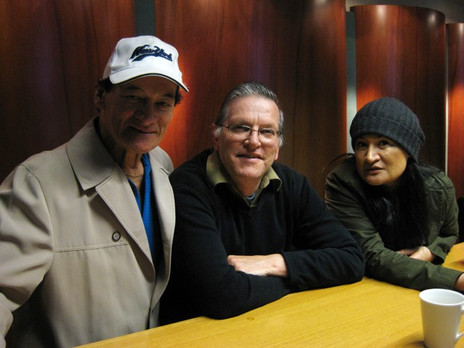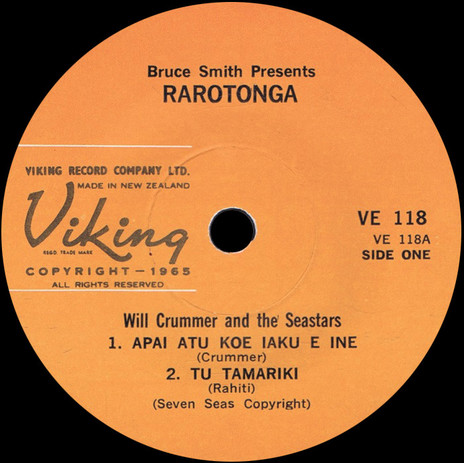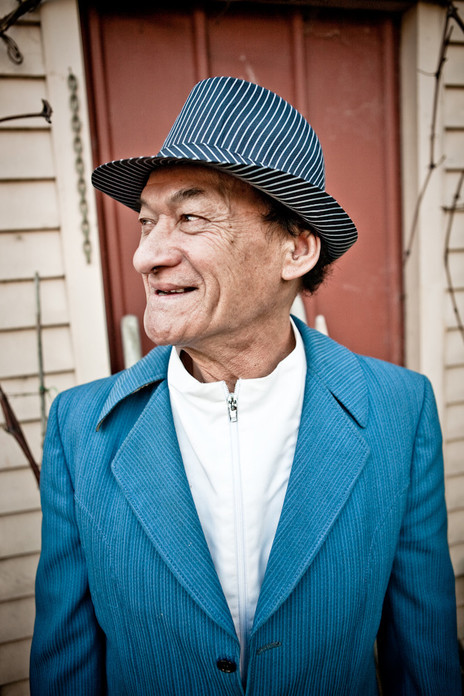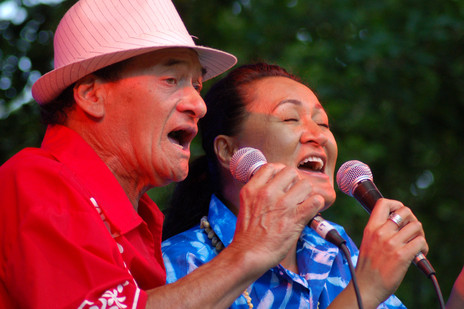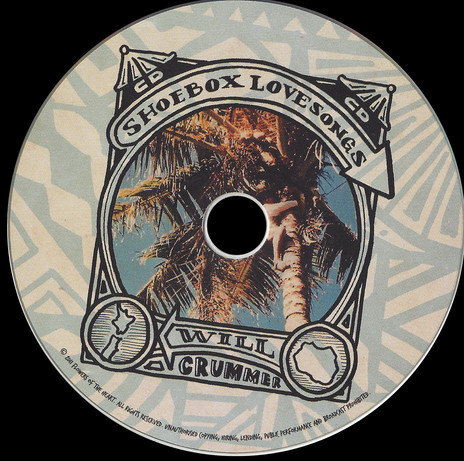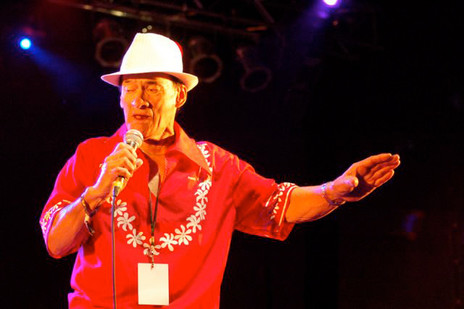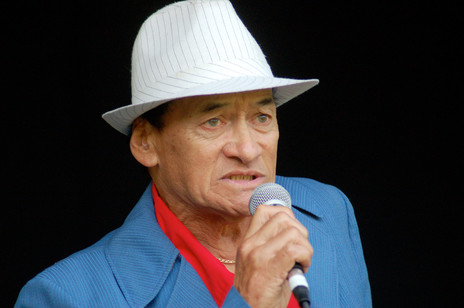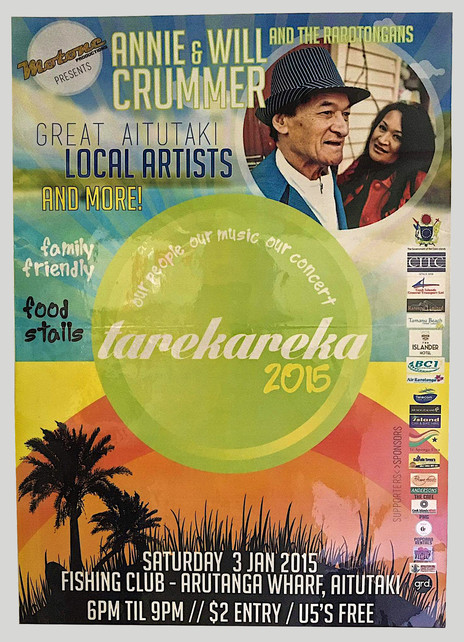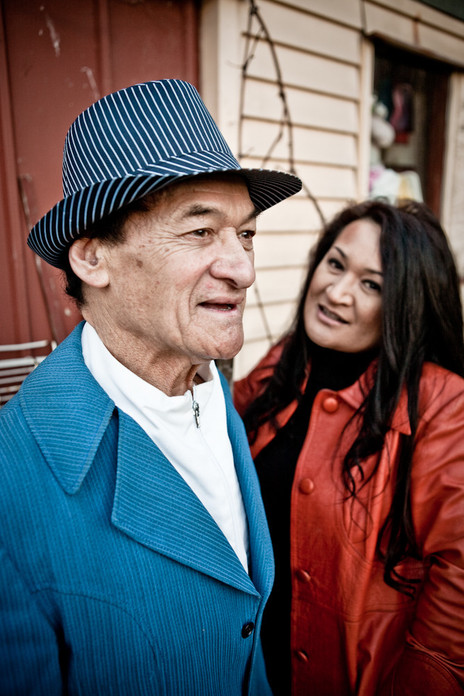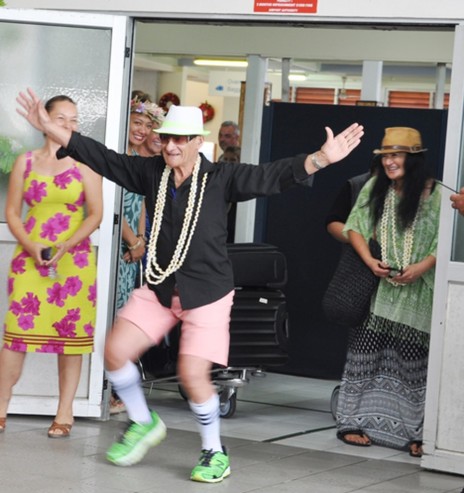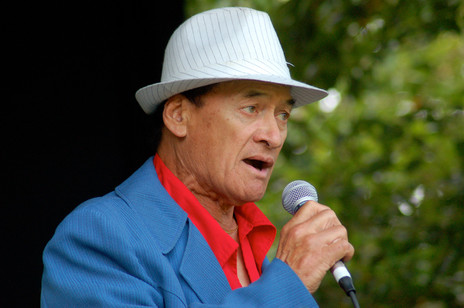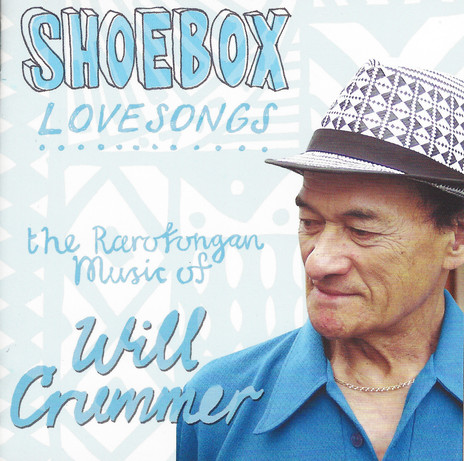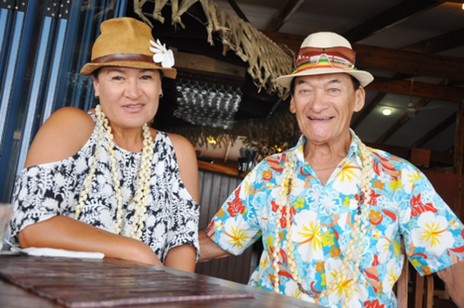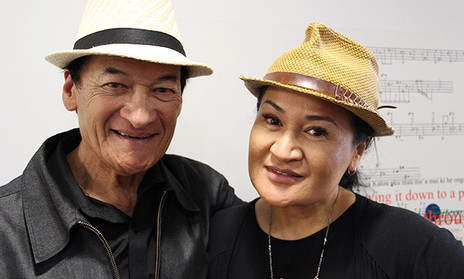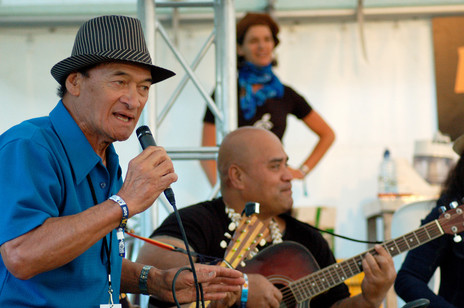According to Will, it all stems from his mother. “My mother was a good singer – she was the leader of the choir.” He adds that she had the loudest voice in the church.
As well as the church there was the radio – “the wireless”. Will was drawn to the smoother side of the pop that rode the airwaves from the US, favouring crooners such as Nat King Cole and Andy Williams, Pat Boone and Jim Reeves. The third element in the mix are the Rarotonga songs that he loved, usually played by small string bands including his favourite, the Pokata Band. “In the old days, those songs have got stories, beautiful stories. Make you cry sometimes.”
It’s the influence of the singers he loved that colours his delivery of the songs he loves, and that makes Will Crummer’s island music distinctive. Annie says, “I don’t know any other Cook Islander who sings like Dad.” He likes to recall how, as a young man, he would climb a coconut tree, settle himself where the fronds spread, and sing. “Sing out over the whole village”. Group sing-alongs at night were another popular pastime, and he also had quite a lot of success at local talent quests.
Among his possessions was a shoebox containing all the songs he knew from Rarotonga.
When he was 20 it was time to leave paradise. Many of his mates and family members had already made the move to New Zealand for work and Will decided to follow. He wrote to one of his brothers to see if the family would pay his fare, and before long he was arriving in Auckland on the SS Mariposa. It was winter, so it was a bit of a shock for someone used to the tropical warmth. Everyone was wearing overcoats and hats and, for the first time in his life, he saw steam coming out of his mouth – he thought it was smoke.
Among his possessions was a shoebox containing all the songs he knew from Rarotonga, that he had written down so that he wouldn’t forget them in his new home.
He soon settled into life in Auckland; one of his brothers got him a job as a concrete worker and it didn’t take long for him to be speaking English. That wasn’t the only thing he had to learn. “My brother taught me to use a toothbrush, we never had them on the island.”
By this time the Pacific island community was well established in Auckland, and part of that was a thriving music scene based around socials and two venues in particular: the Orange Ballroom on Newton Road, and the Reefcomber on the corner of Karangahape and Ponsonby Roads.
Will recalls that the Reefcomber had a rule against bringing in alcohol, so patrons would premix it into the soft drinks they took along. “I’m sure the bouncer knew but he didn’t say anything.”
He also recalls a nine-year-old Annie winning a substantial cash prize in a talent quest there, singing, ‘I Will Always Love You’. “What happened to the money?” asks Annie. “I bought her an ice cream on the way home,” Will replies, to much laughter all around.
It wasn’t long before he was making his presence felt at these events, first singing with other artists such as Sonny Terei and his wife, Pepe, then fronting his own band.
More invitations started coming in, to perform overseas in Tahiti, Hawaii ...
This, in turn, led to recording for the Viking label beginning with a 7” EP, Rarotonga, in 1962 as Will Crummer and the Seastars. Over the next few years this was followed by an LP, Cook Islands Magic, and a further EP, Romantic Rarotonga with the Seastars before a second LP as Will Crummer and the Royal Rarotongans. Will recalls recording these “across from the Civic, on the fourth floor,” referring to the Pacific Building, home of Bruce Barton’s Auckland Wireless Services which later became the first Mascot Studio. These records were released across the Pacific and Will’s voice was now singing out over the whole of Polynesia.
More offers started coming in, including invitations to perform overseas, first in Tahiti, and then Hawaii itself, again with Sonny and Pepe. They were there “for four or five weeks. We were at Waikiki Beach. We performed there at the Queen Surf Hotel.” Will’s career was taking off and he had every reason to feel proud of himself, but he now had a young family to provide for and the concrete worker started to take precedence over the singer.
Although in 1968 Viking released a further LP, Action Rarotonga, featuring Will Crummer and the Royal Rarotongans alongside Pepe and the Rarotongans, Will was reaching a point in his life where he felt he had to choose between family and music. Annie remembers, “The only time we heard Dad sing was when he was mowing the lawns.”
Over the ensuing years Will saw his childrens’ musical careers flourish while his own was placed very much on the back burner. In fact, it appeared that the flame had been extinguished completely. Daughter Annie has become one of the most acclaimed singers in New Zealand and is now a household name, having sung all over the world and shared a stage with many stars of the music world. Her brother David, who she describes as a “fantastic bass player, fantastic singer, [he can] sing anything”, moved to Rockhampton in Australia, where he has established his own recording studio.
What emerged in the studio both astounded and delighted the Crummer siblings.
It was here that Will’s singing career came back to life. David invited Will to visit, mainly because he wanted to take advantage of his father’s expertise in concrete finishing, but also suggesting that Will should bring some songs with him to record in David’s studio. Will, accompanied by Annie, made the trip to Australia, taking with him the shoebox full of songs that he had written down all those years before, when he was leaving his beloved island.
What emerged in the studio both astounded and delighted the Crummer siblings. Annie recalls, “We muted the instruments and there was just the voice. To hear his pure voice without the audio of the lawnmower – for us kids! We just stuck our heads in the speaker – what a beautiful voice!”
Back in New Zealand, Annie happened to mention the recordings to musician and writer Nick Bollinger, who expressed an interest in hearing them, so she promised to pop a copy in his letterbox. A few months later Nick and songwriter Arthur Baysting were looking for a suitable project to get their teeth into, and suggested the possibility recording an album with Will. “They came over, we had a chat in our kitchen, and they were really keen,” recalls Annie.
Nick and Arthur set about preparing a proposal on Will’s behalf for a grant from Creative New Zealand, to pay for the making of the album, which they would produce, along with a film of the rehearsals and recording that would be directed, shot and edited by Costa Botes. When he was told that the proposal had been accepted, and how much he was getting, Annie remembers that her father was a little subdued rather than excited. The reason became apparent shortly after when he asked her, “Do I have to pay it back?” She told him, “No, it’s yours.”
Released in 2011, Shoebox Love Songs is a beautiful record. Those involved chose to use mainly traditional acoustic instruments to take the songs that Will had carried from the island back to the style of music that was played back there, back then. The playing and singing is all as it should be and Will is very much front and centre, as a man of his experience and mana should be. His voice betrays little of the years that have passed since his early days on Viking. If anything, it is deeper and richer: matured like a fine wine. “When you’re young the voice sounds pure. Now when you sing, you have to think about it – how it used to be.”
The new album brought about a revival in Will’s music career and he began performing again, usually along with Annie at his side. In 2011 Will Crummer and the Rarotongans performed at the Womad festival in Taranaki and also at the World Music Festival in Penang. These days he’s very much Will Crummer, the singer rather than the concrete finisher, and despite his years, Will keeps himself in good shape, so keep an eye out for further developments.
